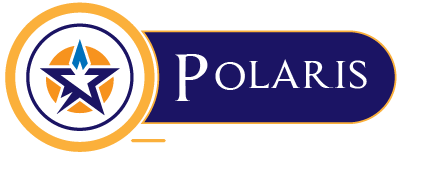The age-old saying “prevention is better than cure,” though overused, holds true. Preventive health is essential to support you in staying healthy and detecting health concerns early or before they generate other issues or become more challenging to treat.
Yes, the necessity for bacterial antigens that can initiate a defensive immune response against different infectious diseases, along with the increasing focus on preventive healthcare practices and the constantly increasing requirement for vaccine development to fight both confirmed and arising bacterial antigens, are all contributing to the exponential growth of the global bacterial antigens market.
What is an Antigen?
Antigens typically contain peptides, proteins, and polysaccharides. Antigens can be any component of bacteria or viruses, including the surface coat, protein, toxins, capsule, and cell wall.
Also, an epitope, also known as an antigenic determinant, is a distinctive location found on the surface of an antigen. In order to elicit an immune response, antibodies produced against an antigen bind to and interact with particular epitopes via antigen-binding sites (paratopes).
The Market Dynamics
The global bacterial antigens market was valued at USD 10.85 million in 2022 and is expected to grow to USD 20.09 million at a CAGR of 6.4% during the forecast period of 2032.
Type of Antigens
Antigens are mostly grouped according to where they came from. Exogenous antigens, for instance, are those that enter the body through inhalation, ingestion, or injection from the outside. Substances, pathogens, allergens, poisons, pollens, etc., are some of them. And normal cellular proteins or a complex of proteins known as autoantigens or self-antigens are mistakenly attacked by the immune system and cause autoimmune disorders.
Moreover, tumor-specific mutations that arise during the neoplastic transition of healthy cells into malignant cells result in the production of tumor antigens. These antigens are expressed on the surface of cancer cells so that the immune system can recognize them.
What is Driving the Market Growth?
One of the major factors propelling the need and bacterial antigens market growth at a rapid rate is the increasing use of numerous bacterial antigens to create new and cultivated antibodies in research labs in order to enhance the immune system as a whole. These antigens are also being used in various diagnostic procedures, including ELISA, Agglutination, SDS-PAGE, and Immunoassay, among others.
Furthermore, the development and use of bacterial antigen-based products, such as vaccines, diagnostic kits, and research tools, is encouraged by the growing awareness of the value of vaccinations and preventative healthcare measures around the world. Also, the expanded emergence of antibiotic-resistant bacterial strains, which highlights the need for innovative alternative approaches to treat bacterial infections, is expected to support market growth.
Competitive Landscape
Due to the presence of multiple competitors, the bacterial antigens market is fragmented and is expected to see competition. In order to stay ahead of the competition and to guarantee effectiveness, integrity, and safety, the major service providers in the industry are constantly updating their technologies. In order to distinguish themselves from their rivals and take a sizable chunk of the market, these firms concentrate on collaboration, product updates, and partnerships.
Here are some of the major players operating in the industry:
- BioFire Diagnostics
- Enzo Life Sciences Inc.
- LGC Bioresearch Technologies
- QED Bioscience Inc.
- Synthetic Genomics
Market’s Recent Developments
- The Native Antigen Company released new influenza antigens in November 2022 in preparation for the 2023 flu season in the southern hemisphere. As part of their vaccine reformulation initiative, the newly produced antigens will help the development of new vaccinations and diagnostics.
- The three new primary immunohistochemistry antibodies for cancer diagnostics—CD8A, CD56, and CD163—will be released by BioGenex in December 2021. The company is a pioneer in the field and a leading provider of automated staining solutions for cancer diagnostics.
Closing Thoughts
The need and demand for antigens will grow over the forthcoming years because of the growth in the number of diagnostic tests performed on humans, the raised prevalence of novel bacterial antigen launches, and the acceptance of products by significant research universities and associations, increasing the bacterial antigens market demand.

